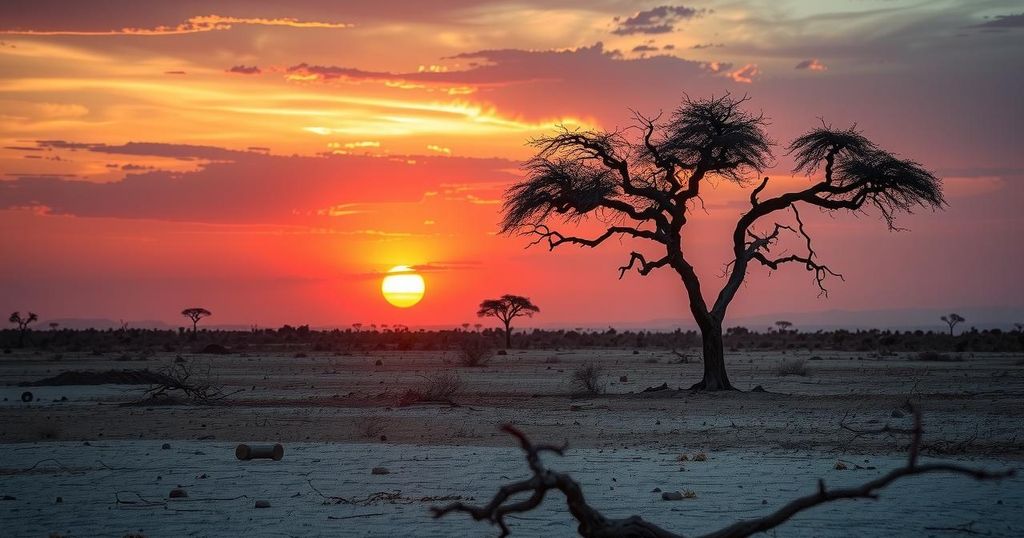Crisis Overview: The Drought Impacting Southern Africa

Southern Africa is experiencing a severe drought affecting 61 million people, with Namibia declared a state of emergency. The drought has led to food insecurity, prompting drastic measures such as culling wildlife to provide food. Climate change is identified as the primary cause of this crisis, reflecting a global trend of increasing natural disasters. Immediate action against climate change is essential to mitigate further environmental impacts.
Currently, Southern Africa is grappling with one of its most severe droughts in a century, affecting approximately 61 million individuals. Of these, over 20 million are experiencing acute food insecurity classified as IPC Phase 3, demonstrating the dire humanitarian crisis in the region. Namibia, Botswana, Lesotho, Malawi, Zambia, and Zimbabwe have all declared states of emergency in response to the escalating situation.
Among the countries affected, Namibia faces the most severe crisis, with around 40% of its population experiencing acute food insecurity. In a drastic measure, the Namibian government has authorized the culling of approximately 700 wild animals, including 83 elephants and 30 hippos, to alleviate hunger and provide food for some of its citizens. Alarmingly, by 2024, 84% of Namibia’s food reserves are expected to be depleted.
Historically, Namibia has experienced recurrent droughts leading to similar declarations of emergency. Over the last decade, the nation has faced states of emergency multiple times between 2013 and 2019, all attributed to drought conditions. These recurring events highlight the vulnerability of the region to climate-induced disasters.
The primary driver behind this severe drought is climate change, a factor contributing to the increased intensity and frequency of natural disasters worldwide. This trend is evident in the statistics, reflecting a substantial rise in climate-related disasters from 2000 to 2019, with major floods and severe storms increasing significantly.
The situation in Namibia is part of a larger global challenge posed by climate change, which will persist unless mitigating actions are taken. The environmental crises impacting California and Spain further emphasize the global nature of these challenges. To safeguard Namibia and the planet, concerted, immediate action against climate change is imperative.
Addressing climate change requires recognizing its widespread effects. Even individuals not directly affected by ongoing crises must understand the existential threat posed by climate change. While individual actions may seem insignificant, collective efforts can drive substantial change, underscoring the urgency for action to prevent irreversible damage to our environment.
In summary, Southern Africa is experiencing an unprecedented drought that has led to a humanitarian crisis impacting millions. Countries like Namibia are implementing drastic measures to combat food scarcity, while the underlying cause of these disasters—climate change—continues to escalate. The historical context signifies recurring issues that must be addressed urgently. It is essential for individuals and communities worldwide to recognize their role in combating climate change for the sake of both local and global sustainability.
Original Source: www.theteenmagazine.com






